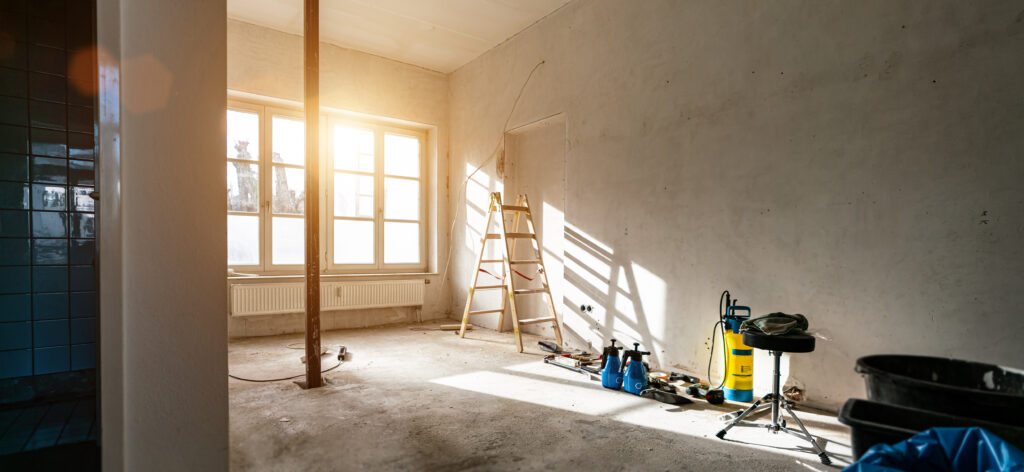From time to time a trend pops up in commercial real estate that’s interesting or strange enough to get a conversation going. Throughout the pandemic, when businesses were struggling everywhere, the trend that captured the imagination of entrepreneurs in the midst of a chaotic restaurant industry was “ghost kitchens” (we wrote about it, too!).
While restaurants, retail stores, and other businesses tried to adapt to new expectations from their customers, the freedom and flexibility from ghost kitchens made some believe that they would make up 20% of the restaurant industry by 2025 (per CNN). After such lofty predictions, it may be a shock to see businesses like Kitchen United, Butler Hospitality, and CloudKitchens pulling back in a big way after their own considerable investments in the ghost kitchen concept. So, what happened? And what can we learn from this trend’s near meteoric rise and sudden fall?
What are Ghost Kitchens?
To recap, ghost kitchens (also known as cloud kitchens, virtual kitchens, and dark kitchens) are businesses that offer a delivery-only menu, with no available dine-in options for their customers and no unique signage on their location for identification. Because of this (although these businesses existed before the pandemic), ghost kitchens rose to prominence in recent years by sharing space with other restaurants and utilizing popular delivery apps like Grubhub and Uber Eats to bring their food to consumers.
In this setting, ghost kitchens felt like a saving grace to some as restaurants going through trying times looked for ways to diversify their offerings. For businesses that closed, these new businesses meant that unused properties could still be utilized in a stripped down sense to save on costs. Fending off a skyrocketing overhead at the time and capitalizing on consumer trends of delivering out more and more – these factors brought ghost kitchens to the forefront of a faltering industry. This makes their decline all the more shocking.
Why are Ghost Kitchens Failing?
Businesses that have previously modeled their efforts around these delivery-only locations are making massive cuts of late, and established chains, like Wendy’s, that were experimenting with the concept are also rethinking their growth efforts (per reporters at Nation’s Restaurant News). Why? As many industries have been learning more and more, digital-based business models that boomed during the pandemic are increasingly tapering back as the public returns to old habits.
Companies like Zoom and Peloton took off during the pandemic, as they filled new needs catering to remote workers, but as these customers made their way back into the office and gym, the need for at-home meeting and fitness solutions naturally fell off. Though it seems that ghost kitchens may be experiencing the same fate as these pandemic darlings, there are other nuances that might be affecting their fall-off.
Delivery apps are extremely convenient, but (as noted by contributors at The Cold Wire and others), there are a litany of factors that force costs for food delivery to go up. For ghost kitchens, most of which rely on these delivery apps, they have to either eat those costs to keep customers, or hope that the stiff prices don’t push away business on their own. Outside of costs, many of these delivery-only kitchens are learning firsthand the lost value of holding a physical presence in their community.
The Power of Brick and Mortar
Something observed in the E-commerce sphere is the surprising value of a physical presence where clients can visit and view products in person. Via analysts at Forbes, two-thirds of shoppers are more likely to make a purchase online if they can visit a physical location. What businesses are learning more and more is that a brick and mortar store is a powerful marketing tool in itself where they can reinforce their brand’s personality, introduce new products, and craft an experience for their customers (consider the unique feel an Apple store conveys).
In the case of ghost kitchens, customers who ordered from a new local restaurant only to discover that their order came from a national chain also felt deceived by the experience. Brick and mortar restaurants today still seem to have the easiest track to plug into a community and build a resilient business model with a longer lifespan. Although ghost kitchens may not disappear completely, it looks like they will continue to be a supplementary option to traditional dining.
Did you know that NPI inspectors have specialized training in assessing commercial real estate? To work with the most skilled commercial property inspectors in the business, contact NPI today!



